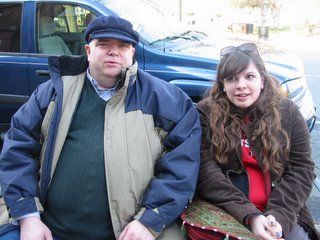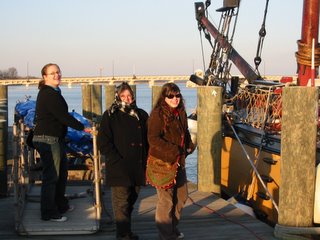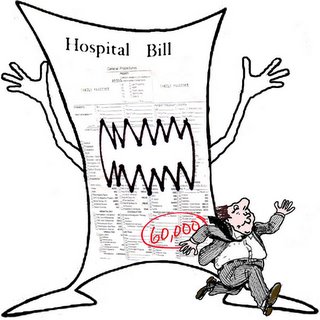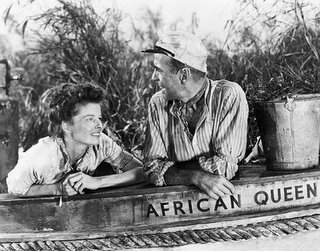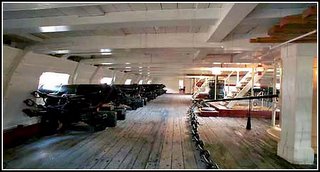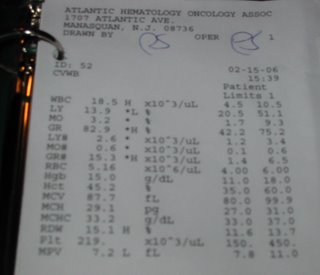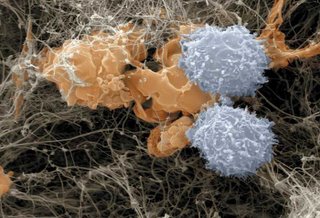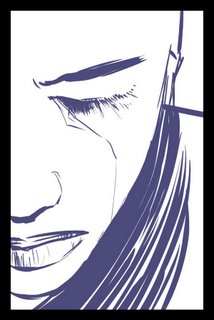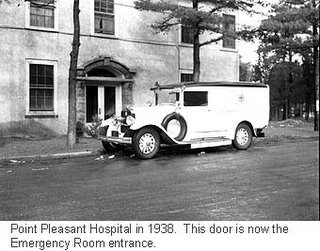(by Dr.Yonnas Gondemo, Ethiopian Politics Contributor)For anyone that has not yet read CSIS’s (Center for Strategic and International Studies)
article (written by Professor Terrence Lyons) I urge you to do so. These are the people that provide decision makers here in the U.S with “strategic insights” on situations happening around the globe. Policy makers heavily rely on the analysis that they get from such organizations to shape their views. Therefore it is strategically beneficial for us (in the struggle) to know how they perceive the situation.
In his analysis of the current situation in Ethiopia, Professor Terrence Lyons (George Mason University) came up with three scenarios (possible outcomes):
The first scenario is that some mechanism is found to strengthen the more pragmatic elements in both the ruling party and the opposition while simultaneously marginalizing their respective rejectionist wings.
Let's not forget,
CUD’s 8-Point Precondition to Enter Parliament was a compromise which would have made this scenario a reality. But EPRDF (Ethiopian People's Revolutionary Democratic Front) was not able/willing to reciprocate. The article makes an important point:
Sustained and meaningful international pressure and a transformation in how the international community relates to the incumbent regime will be necessary for this option.
That’s what we have been saying all along…
The second scenario envisioned by some in the opposition is for the EPRDF to collapse under the pressure of massive demonstrations and international sanctions, allowing the opposition to ascend to power. This option has never been realistic, given the EPRDF’s overwhelming superiority of power, but has been the dream of some in the opposition (notably some safely in the diaspora) and the paranoid fear of some in the ruling party.
Professor Lyons takes a little stub at us (the diaspora), and he has merit to do so. I am intensely annoyed by members of the “Starbucks Ethio liberation front” group. Yes we all know who they are. These are people who live in the US but are not willing to make a two hour drive to attend a “support imprisoned leaders” rally, and yet are very willing to give advice on how the demonstrations in Addis should be carried out.
Having said that, I would like to note, Tegbar civic group and the newly reformed (hopefully), kinijit North America, are playing an important positive role in Ethiopian politics, these people are in no way related to S.E.L.F.
And this second scenario is not unrealistic at all (here I disagree with Professor Lyons) ; EPRDF’s “overwhelming superiority of power” could unravel at any moment for the simple fact that TPLF (Tigrayan People's Liberation Front ) is a House Divided against Itself. This article makes mention of that but fails to put two and two together. The ever increasing public dissent, coupled with foreign aid cuts, will lead to a very unhappy and unpaid military, add to that the existing internal descent within TPLF and the result may very well be an atomic explosion making scenario two possible. (and I didn’t even factor in our good neighbor Isayas into the equation)
The third scenario is that the EPRDF will retain its hold on power by increasing its reliance on military and security forces as its electoral legitimacy declines and international criticism and pressures grow. Control over the media and the courts will limit opportunities for the opposition to mobilize, and when it tries, effective but very violent repression is likely. This scenario seems likely in at least the short to medium term, although the extent of violence may vary greatly.
This is what’s happening at the moment ….thus, no further explanation needed.
Many of the article’s points are right on target. At least now we know the policy makers are getting (pretty much) a well balanced analysis. What the policy makers choose to do with the information they have is another story.
But one thing Professor Lyons fails to explain clearly is Prime Minister Melese’s refusal to surrender Badme. Indeed this could be very confusing to an outside observer. After all the Prime minister will get a tremendous reputation boost if he agreed to abide by the courts ruling and withdrew. Bademe is a barren land without any significant economic importance. There is no oil to protect, no minerals to dig out. Then why is Prime Minister Meles risking everything for a useless piece of land?
Badme or in general the conflict with Eritrea, was the last straw that broke the camel’s back. TPLF’s much publicized split was a result of an internal tension that has been brewing for years. TPLF’s policy in regards to Eritrea has been the cause of many heated debates, dissents, (and even) assassinations and assassination attempts within the central leadership of the organization. On one side we have Mr. Zenawi and his pro Eritrean clique; on the other, we have the likes of Mr. Siye Abreha, who viewed Eritrean influence in TPLF’s affairs as an intrusion.
When the ever unpredictable and arguably insane president of Eritrea chose to attack Tigray (province of Ethiopia) overtaking Bademe, the internal conflict within TPLF exploded. The hardliners lead by Mr. Siye believed a strong military response which will bring about regime change in Eritrea was in order. They were also questioning the prime minister’s motives for favoring a softer response (the prime minister is part Eritrean).
The cost of recapturing Bademe proved to be very high. Thousands were killed and injured. Mr. Siye and his supporters believed this sacrifice should not be in vain. They argued that as long as President Isayas is in power, similar conflicts were unavoidable. Thus, they advocated for finishing the job (getting rid of Isayas) once and for all. This stance was very popular within the military and people directly affected by Eritrea’s actions (people in Tigray). For whatever reason, Prime Minister Meles did not support this plan, and with a Machiavellian precision eliminated all voices of dissent in his party, shipping many off to prison on trumped up charges (Some say targeted assassinations were also used).
Though the opposition within his party (for at least the moment) is quelled, surrendering Bademe to Eritrea will unravel Prime Minister Meles’s support in two ways. One, the military who had paid dearly for this war will undoubtedly feel betrayed. Two, Mr. Zenawi will loose support tremendously within TPLF’s stronghold Tigray (Badme at the moment is part of Tigray).
The Prime minister made a big blunder in judgment when deciding to first go to war and then later accept the arbitration by the international court. Had he done it (gone to court) before going to war, and sacrificing many lives, he may have been able to save face. But in an attempt to please everyone, he decided to take over Badme by force thus increasing his popularity within the country and then later to ask for arbitration from the international community hoping to gain the support of foreign leaders.
But when the international court awarded Badme to Eritrea, the plan came to a screeching halt. And this is where we are now. It is surprising how unprepared the Ethiopian government was for such a scenario, no plan B, if you will. Stuck between a rock and hard place, the prime Minister has no choice but hope to buy some time by invoking empty words like “accept in Principal” and “more dialog” .
Getting back to the topic at hand (CSIS’s article), Scenario one and two are the outcomes most Ethiopians favor. At the moment scenario one is more unrealistic than scenario two, for a couple of reasons. First, Prime Minister Meles has continually refused to negotiate or make any meaningful compromise. And second, the West (in particular U.S and U.K) have shown little willingness to exert pressure on Mr. Zenawi’s government, for fear of destabilizing the region.
Insulting and accusing the U.S and Great Britain for their reluctance to come down on PM Zenawi’s government will accomplish very little. What Ethiopian opposition leaders around the world must do is assure the west a viable and able opposition is ready to take over. Ethnic federalism, which has been shoved down the throats of Ethiopians for the past 14 years, has had a very negative effect. Many separatist functions have immerged; due to this fact the fear that if Mr. Zenawi’s government collapses Ethiopia may turn into another Somalia is not entirely illogical.
If Ethiopians want real change and the support of the free world, an intense dialog should be started right now between the various functions. Organizations like the OLF (Oromo Liberation Front) and ONLF (Ogaden National Liberation Front) have to join in the discussion. Opposition leaders (in the Diaspora) have to prove to the world a truly democratic society has emerged from the ashes of communism and ethnic federalism. One that is based on compromise, negotiations and diplomacy: thus proving to anyone concerned that the people of Ethiopia are, at last, indeed ready for a true democracy.
(Pdf format)

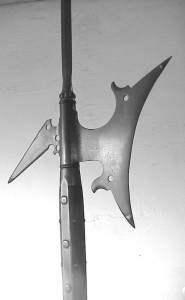 Previously in my dream, I’ve been fitted for these fancy duds, which have been supplied by a costume shop. They’ve been delivered to the banquet hall ahead of time, in a series of special suitcases that resemble musical-instrument cases. One boxy-looking one contains the helmet I’m to wear on my head. Another is about six or seven feet long, in order to accommodate the halberd I’m supposed to hold (a halberd is a medieval weapon that’s a cross between a spear and an axe).
Previously in my dream, I’ve been fitted for these fancy duds, which have been supplied by a costume shop. They’ve been delivered to the banquet hall ahead of time, in a series of special suitcases that resemble musical-instrument cases. One boxy-looking one contains the helmet I’m to wear on my head. Another is about six or seven feet long, in order to accommodate the halberd I’m supposed to hold (a halberd is a medieval weapon that’s a cross between a spear and an axe). I don’t suppose too many other people have dreams about medieval ecclesiastical uniforms, but there’s all manner of historical trivia rattling around in this over-educated brain of mine. Some of it isn’t good for much else besides dream-fodder. I don’t think there’s any coherent message in the dream: just an expression of the complex feelings that go along with the treatments I’m receiving. But that’s one thing dreams are good for. They’re a way in which the sleeping mind can quietly go to work on solving life’s problems.
I don’t suppose too many other people have dreams about medieval ecclesiastical uniforms, but there’s all manner of historical trivia rattling around in this over-educated brain of mine. Some of it isn’t good for much else besides dream-fodder. I don’t think there’s any coherent message in the dream: just an expression of the complex feelings that go along with the treatments I’m receiving. But that’s one thing dreams are good for. They’re a way in which the sleeping mind can quietly go to work on solving life’s problems.
